Boston commuters were understandably peeved when protesters formed human barricades on Interstate 93 north and south of the city last January. The protesters—some in lockboxes, others in barrels—snarled traffic in a coordinated act of civil disobedience on the birthday of the Rev. Dr. Martin Luther King, Jr., in an effort to focus public attention on "racial profiling, unjust incarceration, and murder of Black people."
They sure got our attention. Twenty-nine protesters and supporters were arrested and, this week, a handful of bills proposing heightened penalties for such actions will have a hearing before a state legislative committee.
As a commuter myself, it’s easy to see why drivers were miffed. After all, traffic into Boston is notoriously dreadful, and our crumbling public transportation system offers subpar alternatives to car travel in the dead of winter. Plus, the news reports said the action delayed an ambulance by 20 minutes. As one friend told me, “they have every right to protest, so long as I don’t have to deal with it.”
But wait – isn’t making ordinary folks deal with systemic injustice the point of civil disobedience?
Throughout history, acts of civil disobedience have inconvenienced society, forcing us to reassess and change for the better. The Boston Tea Party, the suffragette movement, the Bread and Roses Strike, resistance to British rule in India, the US civil rights movement, the anti-apartheid struggle in South Africa, and student sit-ins against the Vietnam War are just a few examples.
Notably, human roadblocks long have been a critical protest tactic. Remember the march from Selma to Montgomery over the Edmund Pettus Bridge? (If you don’t know the reference, please check out the movie Selma). No doubt, traffic was snarled there, too. But raising public awareness was worth the inconvenience.
Closer to home, the I-93 protesters may well have taken a tactical lesson from the Boston police and fire departments. After all, the Boston police and firefighters used the same road-blocking tactics to protest staff cut-backs in 1981.
At the time, demonstrators formed a human blockade against morning rush hour traffic on key roads and bridges leading into Boston. They caused massive traffic jams, delaying commuters and blocking fire lanes, according to The New York Times.
The demonstrators, many of whom were off-duty and laid-off firemen, chanted in protest to the cutbacks as they marched arm-in-arm halting morning traffic with a 30-foot wide banner that read: "Help! Save Jobs That Save Lives."
According to reports at the time, one of the leaders of the demonstration, Richard Besse, an off-duty Boston firefighter, surveyed the results of the demonstration and called it “terrific. . . . This is what we wanted to do to get our message across.”
Some of the demonstrators even encouraged motorists to run down state police who were attempting to deal with the protests, calling to passing motorists: “Ten bucks if you hit them!”
Can you imagine what charges would have been filed against the 2015 Black Lives Matter protesters if they had encouraged drivers to mow down the police?
There’s another big difference between the 1981 protest by police and firefighters and the protests on behalf of Black Lives Matter.
In 1981, no arrests were made.
According to then-Boston Police Commissioner Joseph Jordan, “We’ve had demonstrations for the last 15 years. Our policy has always been to make an arrest only in cases where there is an aggressive, hostile demonstration and these demonstrations have been peaceful.”
So, it turns out, the I-93 protesters were acting in accordance with a long and patriotic American tradition of using civil disobedience to shed light on injustice – and they succeeded. Rather than enhance penalties for their behavior, I hope the prosecutors drop the charges and the state legislature uses this moment to remember the history of civil disobedience and to acknowledge that such protests, while inconvenient in the immediate moment, ultimately strengthen America.
And the next time a political protest ties up my morning commute, I’ll tune into the DropKick Murphy’s “We’ve Got the Power” – an ode to civil disobedience in the 1919 police strike – and remind myself that being late for work is a small price to pay for living in a free country.
ACLU of Massachusetts intern Hersh Gupta contributed research for this blog.
Photo by Tony Irving.
Late for work, yet still free
Related Issues
Related content
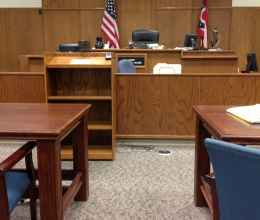
Federal Court Grants Preliminary Injunction Against Department of...
April 24, 2025Researchers Challenge NIH’s Politically Driven Grant Cancellations
April 2, 2025ACLU and NEA Sue U.S. Department of Education Over Unlawful Attack...
March 5, 2025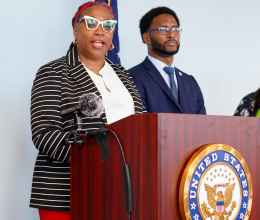
ACLU of Massachusetts statement on recommendations to reinforce...
October 16, 2024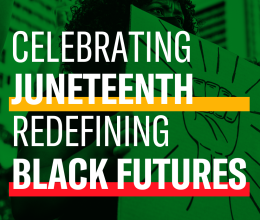
Juneteenth 2024: Celebrating the Past and Redefining the Future of...
June 13, 2024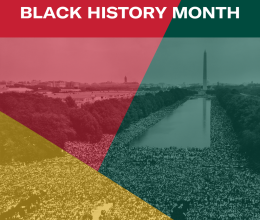
Black History Month
February 1, 2024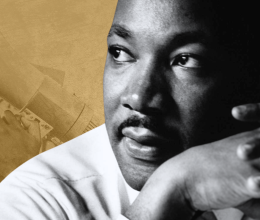
Finding the courage to be change-makers in our communities
January 11, 2024